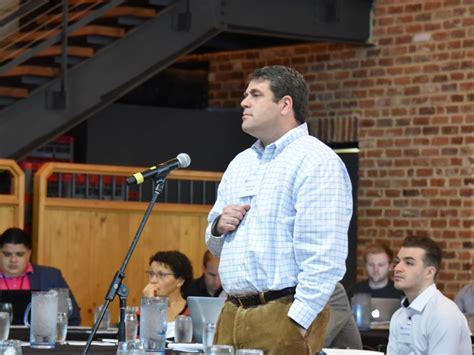Цитата Николаса Кристофа
Если бы только мясо не было таким вкусным! Конечно, мясо может привести к сердечному приступу. Да, фабричные фермы мучают животных. Действительно, для приготовления одного котлета для гамбургера требуется больше воды, чем две недели принятия душа. Но для слабовольных из нас нет ничего лучше сочного бургера.
Связанные цитаты
Некоторые мясоеды защищают мясоедение, указывая на то, что это естественно: в дикой природе животные едят друг друга. Однако животные, которые попадают к нам на завтрак, обед и ужин, не являются теми, кто обычно ест других животных. Животные, которых мы используем в пищу, — это не мирские львы, тигры и медведи. По большей части мы едим нежных веганских животных. Однако на сегодняшних фермах мы фактически заставляем их становиться мясоедами, заставляя их есть корм, содержащий переработанные останки других животных, которых они никогда бы не съели в дикой природе.
Девяносто пять процентов яиц, производимых в Америке, поступают от птиц, выращиваемых на промышленных фермах. Даже если бы фермы на свободном выгуле были гораздо более гуманными, огромное количество животных, выращиваемых для удовлетворения потребности людей в яйцах, мясе и молоке, делает невозможным выращивание их всех на небольших фермах на свободном выгуле.
Животные, выращенные на кукурузе, производят более жирное мясо, но дело не только в том, что оно жирнее, а в том, какие виды жиров. Говядина, откормленная кукурузой, производит много насыщенных жиров. Так что болезнь сердца, которую мы связываем с употреблением мяса, на самом деле является проблемой мяса, откормленного кукурузой. Если вы едите говядину травяного откорма, она имеет гораздо больше питательных свойств, чем дикое мясо.
Мясная промышленность поняла, что для получения прибыли не нужны здоровые животные. Больные животные более прибыльны... Фабричные фермы рассчитывают, насколько близко к смерти они могут держать животных, не убивая их. Это бизнес-модель. Как быстро их можно заставить расти, насколько плотно они могут быть упакованы, сколько или как мало они могут есть, насколько они могут заболеть, не умирая... Мы живем в мире, в котором принято относиться к животным как к животным. блок дерева.
В то время как личный интерес, возникающий из удовольствия от поедания мяса, очевидно, является одной из причин его закрепления, а инерция — другой, процесс использования языка поглощает дискуссии о мясе, конструируя дискурс таким образом, что эти вопросы никогда не нужно затрагивать. Язык отдаляет нас от реальности мясоедения, тем самым усиливая символическое значение мясоедения, символическое значение, которое по своей сути является патриархальным и ориентированным на мужчин. Мясо становится символом невидимого, но всегда присутствующего — патриархального контроля над животными и над языком.
Люди могут надеяться, что мясо, которое они покупают, принадлежит животному, которое умерло без боли, но на самом деле они не хотят об этом знать. Тем не менее те, кто своими покупками требует убийства животных, не заслуживают защиты от этого или любого другого аспекта производства мяса, которое они покупают.
Я вегетарианец. Ты что? Я не ем мясо. Как можно не есть мясо? Я просто не знаю. Он говорит, что не ест мяса. Что? Нет мяса? Нет мяса. Стейк? Нет... Куры! Нет... А колбаса? Нет, ни колбасы, ни мяса! Он говорит, что не ест никакого мяса. Даже колбасы нет? Я знаю! Что с ним не так? Что не так с тобой? Ничего, я просто не ем мясо!




























